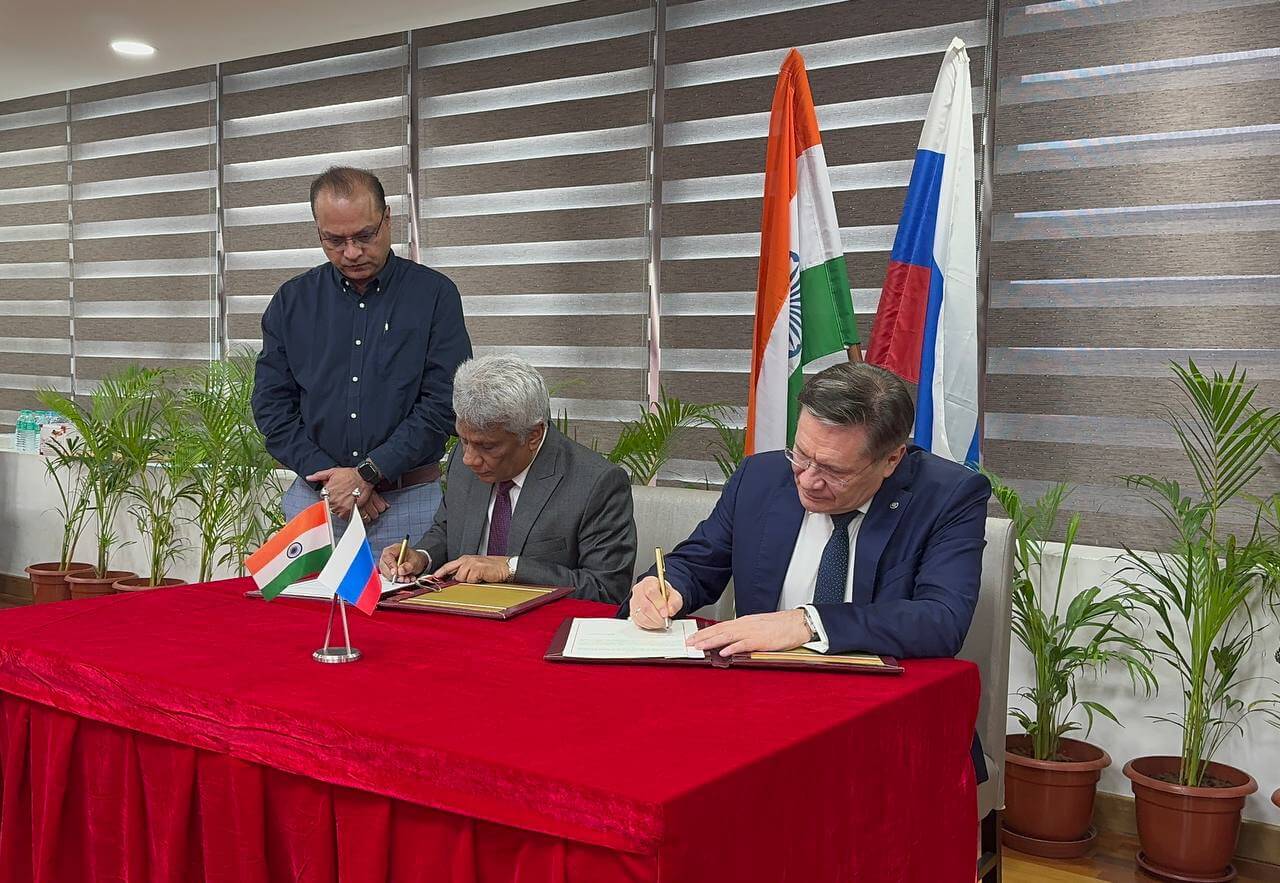India and Russia have signed a protocol to revise their 2008 agreement to build additional nuclear reactors at the Kudankulam Nuclear Power Project (KKNPP) site and construct Russia-designed nuclear power plants at new Indian sites, the Russian Foreign Ministry said in a statement.
The KKNPP in Tamil Nadu is a joint initiative of the two countries and the flagship project of bilateral technological and energy cooperation.
India, Russia Cooperation in Nuclear Energy
The Ministry stated that Russian Ambassador to India Denis Alipov participated in negotiations between Alexey Likhachev, Director General of the Rosatom State Atomic Energy Corporation, and Ajit Kumar Mohanty, Chairman, AEC, and Secretary, DAE, Government of India, at the KKNPP in Tamil Nadu on Thursday.
The negotiations resulted in the signing of a significant document under the joint Russian-Indian project, namely, a protocol to the intergovernmental accord on the construction of power units for the second and third stages of the KKNPP in 2008.
The Russian nuclear energy agency has built two 1,000 MW VVER reactors at the KKNPP site, with plans to construct four more of similar capacity.
During a two-day visit, the Russian delegation evaluated power units in the second and third stages of the KKNPP, including reactors 3–6, and discussed long-term cooperation.
🇷🇺🤝🇮🇳 On February 7-8, 2024, #Russia’n Ambassador to #India Denis Alipov took part in the negotiations between Dr Alexey Likhachev, Director General, @rosatom, and Dr Ajit Kumar Mohanty, Chairman, AEC, & Secretary, @DAEIndia, Govt of 🇮🇳, held at the #KudankulamNPP in #TamilNadu. pic.twitter.com/fVZHYsrxrO
— Russia in India 🇷🇺 (@RusEmbIndia) February 8, 2024
The Ministry also confirmed that they addressed ongoing construction tasks for Units 3-6 of the KKNPP, as well as promising areas of bilateral and multilateral nuclear energy cooperation, especially within BRICS.
“India is our strategic partner. The Russian-Indian nuclear cooperation lies deep in the first intergovernmental documents on the Indian nuclear power projects of Russian design that were signed back in the 80s of the last century. The end of last year was marked by a wonderful joint 10-year anniversary of the KKNPP unit 1 being connected to the power grid of the Republic of India,” Likhachev said.
“Our work continues as part of joint projects in various areas of nuclear energy use and we are optimistic about the further development of our cooperation,” he added.
In addition to the construction of nuclear power plants, Russia’s Rosatom State Corporation organises the delivery of reliable and effective nuclear fuel for the VVER-1000 to India while boosting the operating efficiency of these reactors through the use of extended fuel cycles.
Kudankulam Plant Development
The construction of the KKNPP, being built with Russian technical support, started in March 2002. Since February 2016, the first power unit of the KKNPP has consistently operated at its design capacity of 1,000 MW. According to Russian state media, the facility is planned to start running at full capacity in 2027.
In December, India and Russia signed several agreements for the development of the next power-generating units of the KKNPP. During his visit to Moscow, External Affairs Minister S. Jaishankar said “… we signed some very important agreements pertaining to the future units of the Kudankulam nuclear project.”
“A comprehensive and productive meeting with Deputy Prime Minister Denis Manturov of Russia on our bilateral economic cooperation. Noted the significant progress in trade, finance, connectivity, energy, civil aviation and nuclear domains [...] Witnessed signing of agreements on nuclear power and in areas of medicines, pharmaceutical substances and medical devices,” Jaishankar tweeted after his meetings in Moscow.

